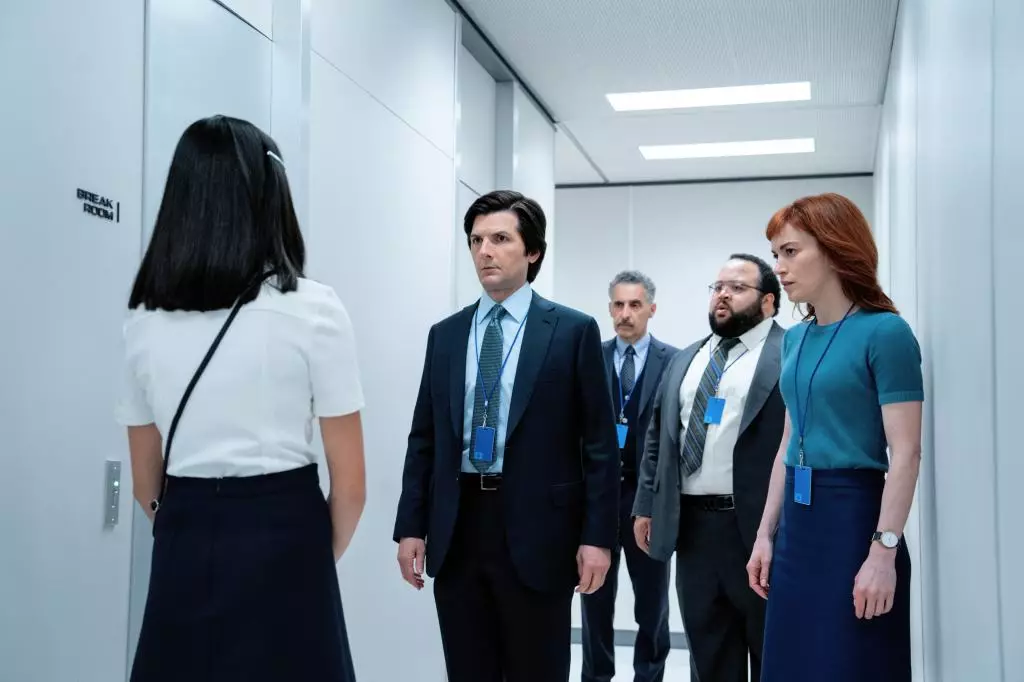As the world grapples with the complexities of contemporary corporate culture, Dan Erickson’s “Severance” emerges as a thought-provoking series poised to explore the dichotomy between one’s work life and personal identity. The show’s sophomore season promises to delve deeper into its intriguing premise—a surgical procedure that effectively bifurcates a person’s memories and emotional responses between work and personal life. This exploration is not merely a fanciful setup; it probes into the psyche of modern workers navigating stress, identity, and the relentless demands of corporate environments.
After a prolonged wait exacerbated by the dual strikes impacting Hollywood, “Severance” Season 2 will finally make its debut on January 17 on Apple TV+. The anticipation is palpable, with fans eager to dissect the themes of isolation and segmented existence, as well as how these themes resonate with real-world experiences. The series’ unique lens provides a metaphorical mirror reflecting how far some corporations are willing to go to create distinct identities for their employees—an unsettling notion that is more than just fiction.
The second season comprises ten episodes, a slight increase from the previous season’s nine. This change itself could signify a deeper dive into the series’ expansive universe, allowing for more character exploration and plot development. The release schedule will see new episodes drop weekly on Fridays, with episodes being available for streaming on Thursday evenings. This coincides with a trend in streaming service strategies that aim to sustain audience engagement over longer periods. The titles of the first few episodes have sparked intrigue, hinting at a story entangled in uncertainties and revelations that are sure to captivate viewers.
Some of the episode titles—such as “Hello, Ms. Cobel” and “Goodbye, Mrs. Selvig”—allude to character transformations and pivotal encounters. Such titles suggest that deeper character arcs are on the horizon, promising revelations that could alter the trajectory of the story. Fans can expect threads from Season 1 to weave into the new episodes, creating a richer tapestry from which tensions and narratives can develop.
Central to the narrative is Mark S. (played by Adam Scott), who is joined by an ensemble cast, including the likes of Patricia Arquette and John Turturro. In Season 2, we are likely to see Mark and his colleagues challenge the very foundations of what they believe to be true in their segmented existences at Lumon Industries. The subplot involving Mark’s realization that his supposed deceased wife, Gemma, is alive and entangled within the corporate labyrinth emphasizes the show’s ability to blend personal and existential crises seamlessly.
Moreover, a revealing twist from Season 1 indicated that Helly (Britt Lower) is a member of the Eagan family—key players in Lumon’s dark history. This connection raises the stakes dramatically for her character’s journey in the forthcoming season. Will she embrace her identity, or will she grapple with the implications of her lineage? Such dilemmas create a fertile ground for emotional and narrative conflicts that resonate with the audience, keeping them on the edge of their seats.
As viewers prepare to embark on this next chapter of “Severance,” key themes regarding self-identity and autonomy in a corporate context will undoubtedly be magnified. The show’s handling of these themes will resonate with a contemporary audience that increasingly feels the weight of corporate culture on personal identity. The consequences of a society that prioritizes professional personas over authentic selves are at the heart of the series and offer stark commentary on converging paths of human experience.
“Severance” Season 2 is not just a continuation of a narrative; it is an invitation to reflect on the implications of work-life segmentation that mirrors many viewers’ realities. The anticipation surrounding the release embodies a larger conversation—a demand for authenticity in a world that often prioritizes disconnection. As we count down the days, fans have good reason to expect an intricate and nuanced exploration of these pressing themes within the corporate framework.
